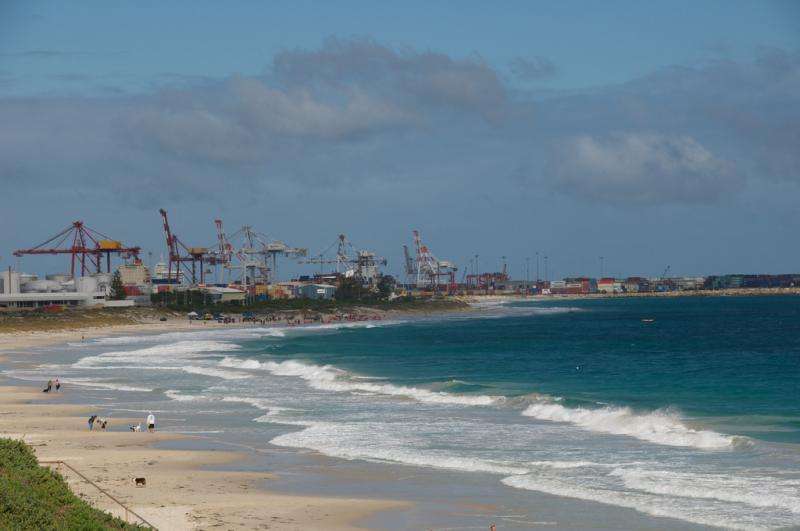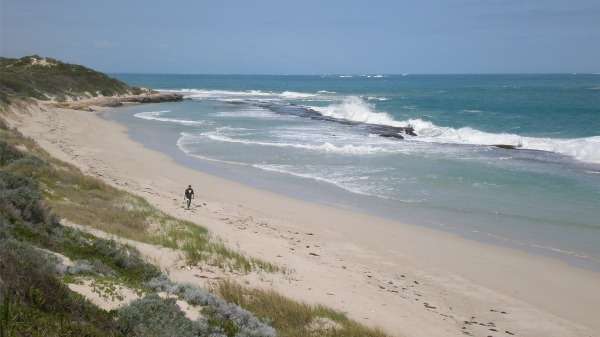Coastal reefs may add to erosion woes

Planning for beachfront homes in WA could be improved following an analysis of Yanchep's reefs and beaches over 34 years which found reefs did not always reduce coastal erosion, as was previously thought.
A group led by former UWA scientist Dr Shari Gallop, now at Macquarie University, examined the inter annual shoreline and vegetation line from Yanchep's beaches using aerial photos from 1974 to 2008.
They found that across 96 per cent of the study area the beach narrowed over time at a maximum annual rate of 1.7m.
But at the southern beach, where the reef is highest, they determined the width between the shoreline and the start of coastal vegetation varied a lot over time.
The findings challenge traditional thinking that reefs generally reduce coastal erosion, Dr Gallop says.
"It's often assumed that the reefs always protect the coast, but this research shows that's not always the case," she says.
"The reefs vary along shore, so while they might be protecting the coast in some places, in other areas, they might be increasing coastal erosion."
The reefs at Yanchep impact on the amount of beach available by modifying the waves, currents and sediment transport, she says.
"In one year, we found one part of the beach eroded by 50m, while a few hundred metres along shore another area accreted further seaward by 50m," she says.

"In summer, the sea breezes mix up sediment into the water and drives it northwards along shore.
"This sediment infills the southern beach at Yanchep, and when that is infilled it blocks the sediment transport pathway through the Yanchep Lagoon to the northern beach, so it erodes."
Increasing human activity and sea level rise is putting more pressure on coastlines, Dr Gallop says.
So knowing more about how reefs impact coastal erosion could aid coastal planning and help stakeholders develop better coastal setback plans (the distance at which a structure is established from the shore).
In WA the state planning policy doesn't outline specific setbacks but provides calculations to work setbacks out depending on the type of coast, including sandy beaches or rocks and cliffs.
While the policy recognises beaches on coral reef and rocky coasts as particular coastal types it doesn't distinguish the huge range of morphologies that occur, Dr Gallop says.
Most coasts that have reefs are often considered in shoreline management plans to be stable but this research highlighted a need for greater understanding, Dr Gallop says.
More information: Shari L. Gallop et al. The impact of temperate reefs on 34years of shoreline and vegetation line stability at Yanchep, southwestern Australia and implications for coastal setback, Marine Geology (2015). DOI: 10.1016/j.margeo.2015.09.001
Provided by Science Network WA
This article first appeared on ScienceNetwork Western Australia a science news website based at Scitech.



















